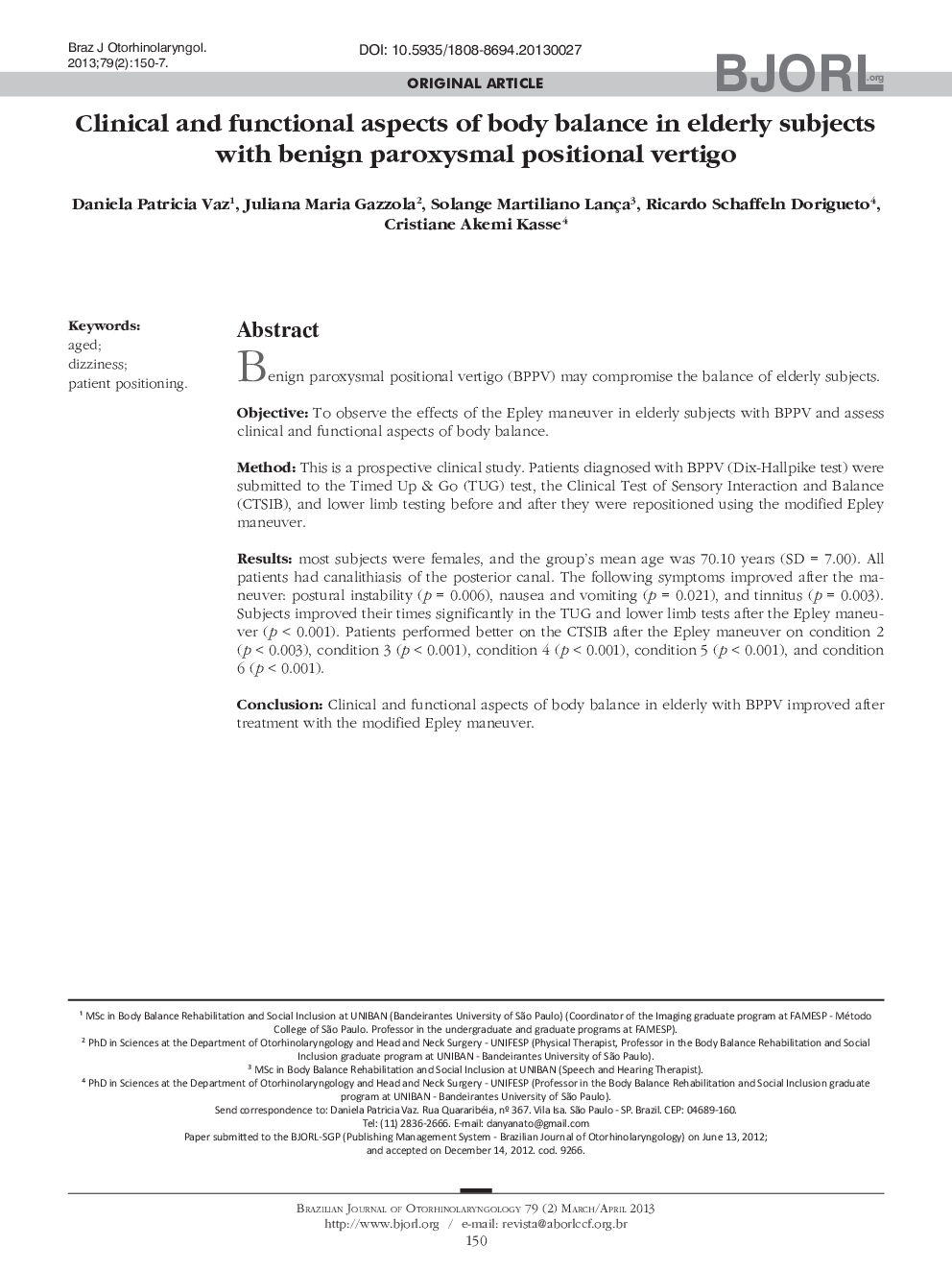| Article ID | Journal | Published Year | Pages | File Type |
|---|---|---|---|---|
| 4106670 | Brazilian Journal of Otorhinolaryngology | 2013 | 8 Pages |
Benign paroxysmal positional vertigo (BPPV) may compromise the balance of elderly subjects.ObjectiveTo observe the effects of the Epley maneuver in elderly subjects with BPPV and assess clinical and functional aspects of body balance.MethodThis is a prospective clinical study. Patients diagnosed with BPPV (Dix-Hallpike test) were submitted to the Timed Up & Go (TUG) test, the Clinical Test of Sensory Interaction and Balance (CTSIB), and lower limb testing before and after they were repositioned using the modified Epley maneuver.Resultsmost subjects were females, and the group's mean age was 70.10 years (SD = 7.00). All patients had canalithiasis of the posterior canal. The following symptoms improved after the maneuver: postural instability (p = 0.006), nausea and vomiting (p = 0.021), and tinnitus (p = 0.003). Subjects improved their times significantly in the TUG and lower limb tests after the Epley maneuver (p < 0.001). Patients performed better on the CTSIB after the Epley maneuver on condition 2 (p < 0.003), condition 3 (p < 0.001), condition 4 (p < 0.001), condition 5 (p < 0.001), and condition 6 (p < 0.001).ConclusionClinical and functional aspects of body balance in elderly with BPPV improved after treatment with the modified Epley maneuver.
